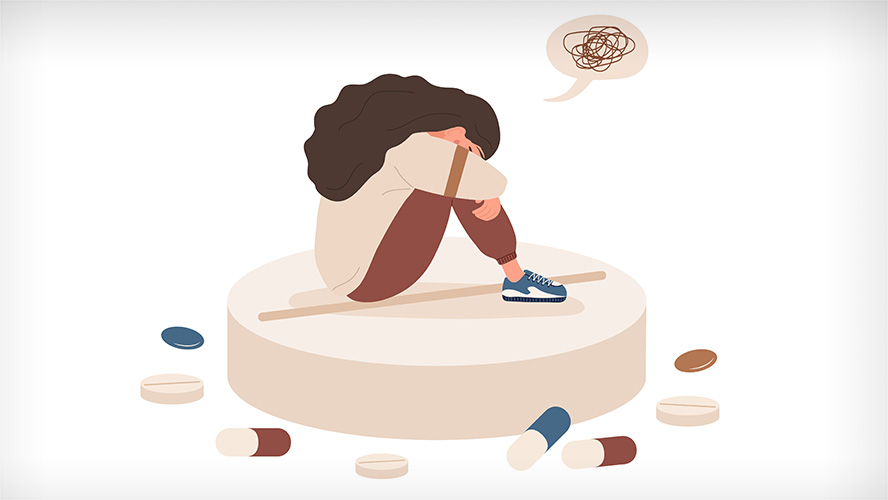
Depression, also known as Major Depressive Disorder (MDD), is one of the most prevalent and debilitating disorders worldwide. First-line treatments include psychotherapy and antidepressant medication. However, approximately 30-55% of adults with MDD receiving medication do not experience adequate improvements.
In addition, around 20% of individuals with MDD have a concurrent personality disorder (PD) called “Cluster B PDs”. These are severe psychiatric disorders that include antisocial PD, borderline PD, histrionic PD, and narcissistic PD.
There are opposing views and evidence on whether having a co-occurring personality disorder negatively impacts the treatment results for depression. There is therefore a significant need to determine whether this is the case and identify interventions that treat MDD in individuals with co-occurring PDs.
To explore this, researchers at Krembil Brain Institute (KBI) have conducted the first known meta-analysis on the impact of having a serious co-occurring personality disorder on treatment for depression. They systematically searched for studies on treatment outcomes and found 61 relevant studies, with 25 having enough data for a combined analysis.
“Our findings showed that patients with Cluster B personality disorders were more than twice as likely to not respond to depression treatment compared to those without these disorders,” says Dr. Joshua Rosenblat, Clinician Investigator at KBI and senior author of the study. “This indicates that having these co-occurring disorders can be a factor in determining depression treatment outcomes.”
This study also emphasizes the need for new treatment approaches for people with both depression and Cluster B personality disorders. Trials led by Dr. Rosenblat’s team are currently underway to find better treatments for this group.
The first author of this study is Kevork Danayan, student in the lab of Dr. Rosenblat.
Dr. Joshua Rosenblat, Clinician Investigator at KBI, is the senior author of this study. He is also an Associate Professor at the University of Toronto.
This work was supported by the Department of Psychiatry (Academic Scholars Award) and the Institute of Medical Science (IMS) at the University of Toronto, and UHN Foundation.
Dr. Joshua D. Rosenblat has received industry funding for speaker/consultation/research fees from iGan, Boehringer Ingelheim, Braxia Health, Braxia Scientific, Janssen, Allergan, Lundbeck, Sunovion and COMPASS. For other competing interests, see the manuscript.
Danayan, K., Newman, J., Benitah, K. et al. The impact of comorbid cluster B traits and personality disorders on depression treatment outcome: a systematic review and meta-analysis. Nat. Mental Health 2, 1392–1407 (2024). https://doi.org/10.1038/s44220-024-00340-z




